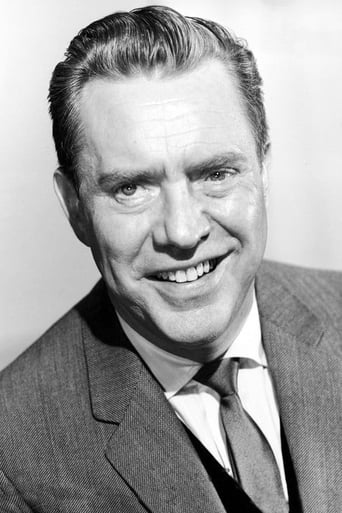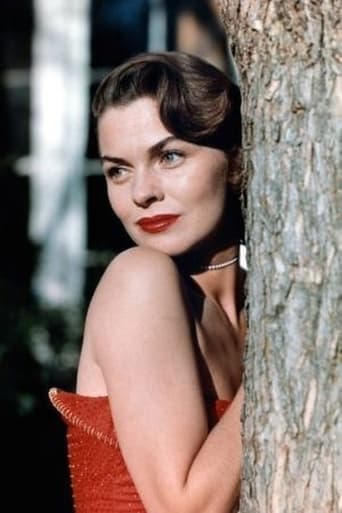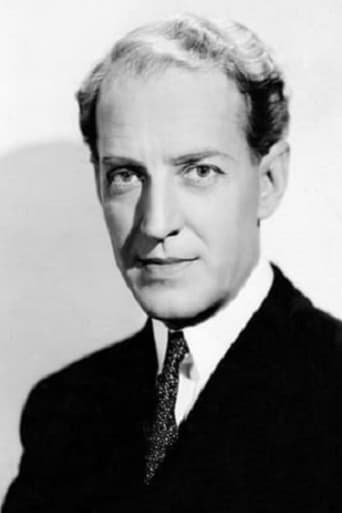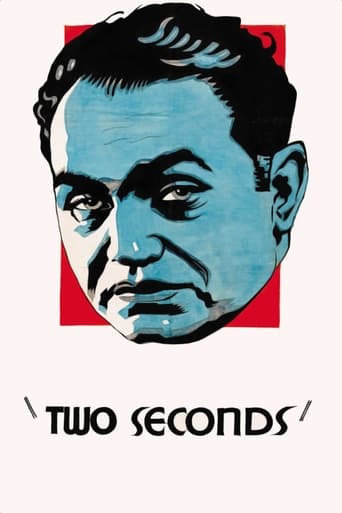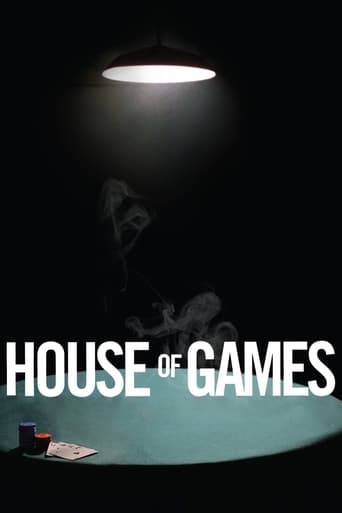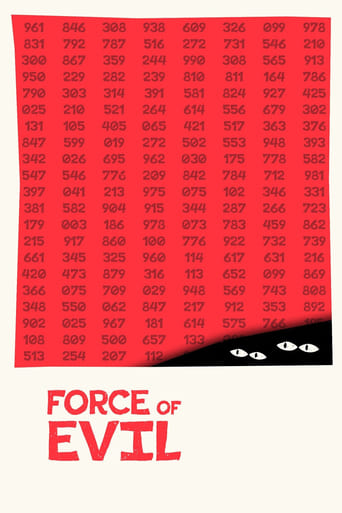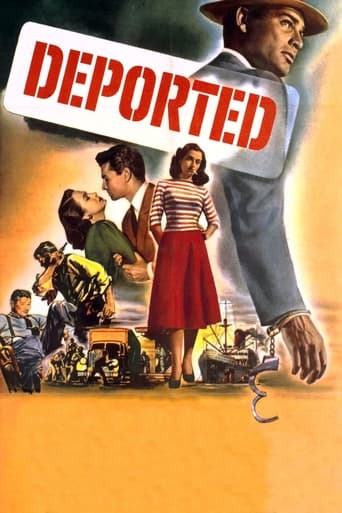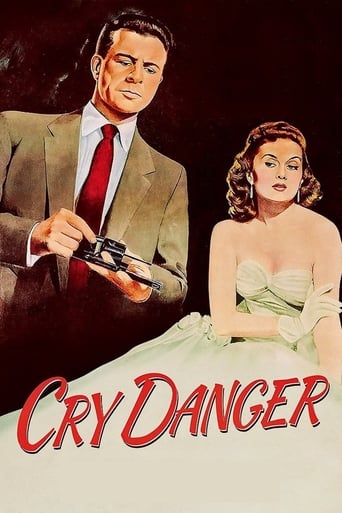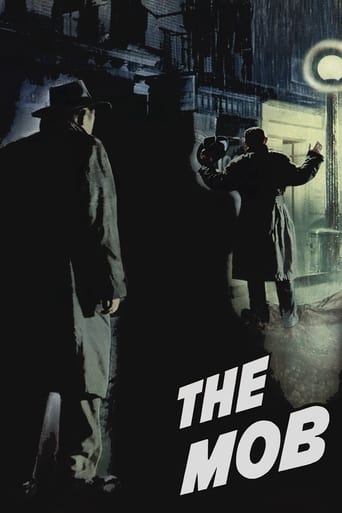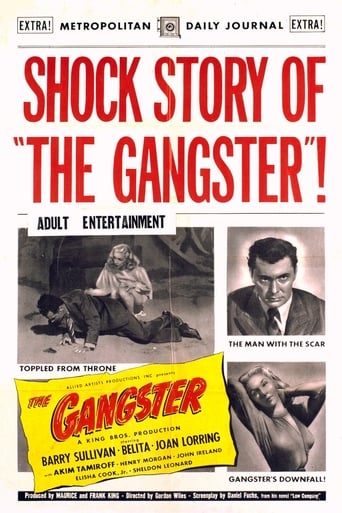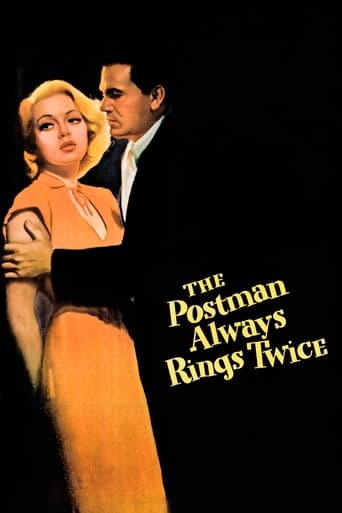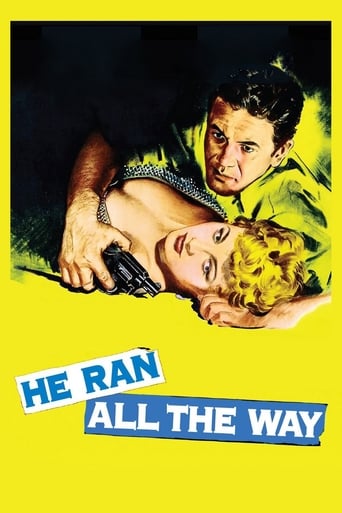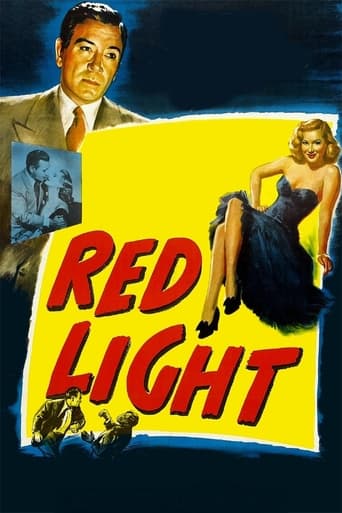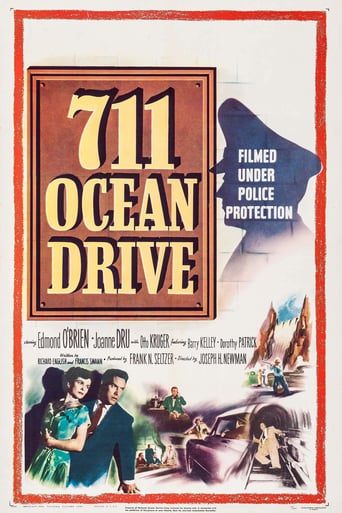
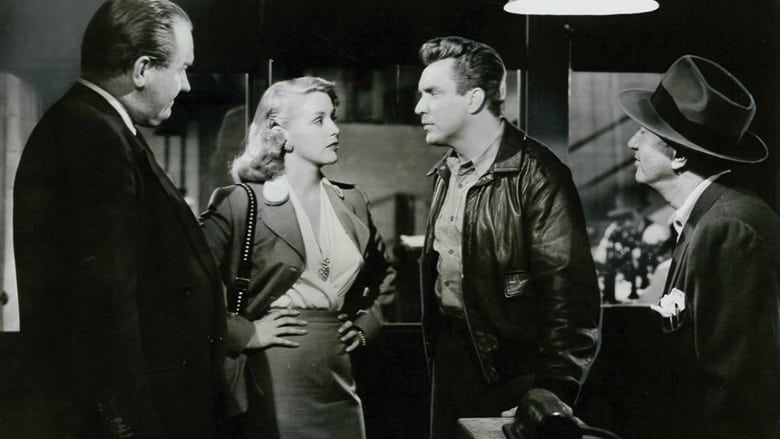
711 Ocean Drive (1950)
The Horatio Alger parable gets the film noir treatment with the redoubtable Edmund O’Brien as a whip-smart telephone technician who moves up the ladder of a Syndicate gambling empire in Southern California until distracted by an inconveniently married Joanne Dru and his own greed. Ripped from the headlines of the 1950 Kevaufer Organized Crime Hearings, this fast-moving picture is laden with location sequences shot in Los Angeles, the Hoover Dam and Palm Springs including the famous Doll House watering hole on North Palm Canyon Drive!
Watch Trailer
Cast


Similar titles
Reviews
Contemporary dramas suffer from a problem...when viewed by later audiences, they require a historical prospective.I saw this film for the first time last night, and it had me rivited to the screen. Not because it is brilliant. Because it is interesting on it's own merits and, more importantly, wildly interesting on the level of the connections with real-life and films before and after it. This is going to be a bit long, but I am in the process going to nominate this film for Lost Classic status. It was one of those wonderful (thank you TCM) discoveries that makes you say "Why have I never heard of this???". "711 Ocean Drive" falls into the gray area of Film Noir/Policer/Mob Movie. As a Policer, it's a total failure. As Film Noir, definitely. As a Mob Movie, incredibly forward for it's time. Director Joe Newman did not have a stellar or particularly prolific career. Likely his best known films would be "This Island Earth" and "The Big Circus". The same can be said for the Writers, English and Swann. The film is immensely helped by Cinematographer Franz (Frank) Planer, who had what can only be called an illustrious career, including 5 Oscar nominations. Only a year before, he filmed the Noir classic "Criss-Cross. The aggressive camera work here could make one wonder who really directed this.There are large portions of this film which owe to earlier pictures, but so do just about all movies. "High Sierra" has been mentioned, though I don't really see it here. "White Heat", only a year before and also with Edmond O'Brien? Yes, but I think they are both similar of the style Hollywood was reaching at the time. "711" actually feels more contemporary of the period. "Heat", while by far the better picture, seems almost a bit dated along side. The Warner's big budget didn't make it as atmospheric as "711", which captures 1950 Los Angeles and Vegas in a time capsule. The extensive location exteriors account for that; "White Heat" is relatively studio (or Prison) bound until the last minutes. And it's true noir; There are no good guys except the cops.Other commentors have not seized on the things that make this most interesting, in that if you were around at the time (or seeing it today as a fan of mob movies), you would recognize some startling characters portrayed at a time which was arguably the high point of the power of American organized crime. When the ultimate lawman, John Edgar Hoover himself, swore before the country that "No national criminal conspiracy exists", which of course was the farthest thing from the truth, it was a pretty sweet time to be the Mafia.Faithful Otto Kruger, doing what he does best in playing a genteel killer, is a thinly fictionalized Meyer Lansky. Don Porter, unusually good here as a suave sociopath, is a barely disguised Ben "Bugsy" Seigal. The assassination of Porter's character is a wonderfully accurate account of how killers, hiding in the bushes of Seigal's Beverly Hills home one night in 1947, pumped several rounds from an M-1 Carbine into the back of his head. They even get the gun right!. These things get better Sammy White, who plays Chippie, looks for all the world like a young(er) Lee Strasburg, who played the Meyer Lansky character in "Godfather II". Bert Freed, in a character clearly based on mobster Moe Dalitz , sports gigantic, obtrusive eyeglasses which you kind of expect to have something to do with the plot, much to your disappointment. But when you take into account that the Moe Greene character in "The Godfather" is based upon Ben Siegal and Moe Dalitz (who have ever since vied for the title "The man who built Las Vegas") AND that one of those bullets famously shot out Ben Siegal's right eye out maybe .that's why Moe got it in the eye? And the Glasses were a convenient place to put the blood squib .Robert Osterloh, who was so very good in "Criss-Cross" (and sadly uncredited, considering the size if his part) is wasted here playing a killer named Gizzi who doesn't get to do much besides wear loud suits, snicker incessantly and get killed. Nonetheless, he's always watchable. Howard St. John is the real casting dud here, woefully wrong as the cop, but he's barely in the picture anyway. Joanne Dru is lovely and adequate as the dypsomaniacal and amoral wife of Porter. It's really not her fault, the script and the director don't give her much to do except provide a love triangle.Edmund O'Brien is, I admit, a favorite actor of mine. Here he is in his element, providing the supercharged high-energy performance he was best at and in this one, it's like he's been wired into the power grid. He seems to be constantly in motion, and that's what keeps this movie moving with him. The only actor at the time who would have been better in this would have been Burt Lancaster. But O'Brien carries it off nicely, given what he has to work with.There is one gigantic plot hole: There is no way on earth the syndicate would not suspect that O'Brien was responsible for Porters murder. He is having a very open affair with the guys wife, and just happens to be there to provide a silly excuse to get himself and Dru out of the line of fire at just the right moment? Men like Lansky were not stupid. However, a little suspended disbelief takes care of such holes.So I hereby nominate this film for Forgotten Classic status...TCM has a print which they showed recently, so keep an eye out for it. To my knowledge it's not on VHS or DVD., which is a shame.
After seeing this movie, you may not look at a telephone repairman the same way again. Actually the result seems closer to the Cagney films of the thirties than to the noirs of the forties. For phone lineman Eddie O'Brien, it's a success story, as opportunity, know-how, and drive propel him to the top of the bookie racket. Fortunately the always energetic O'Brien makes the transition from working stiff to bookie king-pin both dynamic and believable. Then too, we meet some interesting people along the way, including smoothie Otto Kruger doing his best imitation of a smiling cobra, even as young marrieds Joanne Dru and Don Porter practice their 1950's version of open marriage. And in a usual thankless part, moon-faced Barry Kelley who bull-dozes everyone within reach through eyes so pinched, they're barely more than razor slits. Still, it's unheralded bit actors like him that really make movies like this work. Director Joe Newman keeps things moving nicely, even the colorless scenes featuring the forces of law and order don't bog down the pacing. There're also some good location shots in and around LA, with an exhausting climax up and down the the stairwells of Boulder Dam as the giant turbines hum in the background. (I wonder how they get ordinary people who probably just happened to be at the dam that day, to be so natural with a movie camera and crew staring them in the face. Somehow they do.) My favorite part is setting up the "past-posting" scheme, showing how every technical innovation presents a criminal mastermind with a twisted opportunity. All in all, 7-11 may not be a jack-pot dice roll, but it is a decent thriller, entertaining if not exactly memorable.
711 Ocean Drive was indeed preachy, as attested to and confirmed by the blurbs at both beginning and end. Still, I found the film interesting and entertaining (although D.O.A. remains my all-time favorite O'Brien, and one of my top favorites, overall). The character of Mal Granger really presented a sharp and unexpected contrast to that of Frank Bigelow in D.O.A. The real surprise in this film came early on when the personality of Granger, itself, did a 180-degree turnaround, from the benign, carefree and kindly telephone repairman (who insisted his co-worker accept a few bucks that he was in need of), to the ruthless, unscrupulous, and murderous "operator" for whom even a little power is seen to surely corrupt. Although the early-on character of Granger is seen for only the first 15 or 20 minutes of the film, the contrast remained with me throughout. An excellent characterization by O'Brien, as usual.
I'd like to give this film a better recommendation but there's nothing really special about it, nothing that lifts it above the average crime drama of the time, except perhaps the business about modern electronics to update the bookie business, and that's pretty much gotten over with in the first twenty minutes.Edmond O'Brien is an ambitious but honest telephone lineman who is hired by a local bookie manager -- is that the right term? Anyway the administrator of a rather small-scale betting business in Southern California. When he's finished modernizing the arrangement, making it faster, cleaner, and more efficient, he becomes indispensable to the organization and nudges the big guy out.But the success of the business attracts the attention of the REALLY big guys in Cleveland. They form a partnership with him, cheat him, he cheats back, he's betrayed by his partners, and has a confrontation with the cops in the internal passageways and on the sunlit roof of Boulder Dam. Nice scenery at Boulder Dam, but I could have sworn someone was bound to tumble off it. The usual scenario calls for O'Brien to take the swan dive. Instead, there is one of those pointless shoot outs, in which O'Brien is wounded and stumbles at a run across the dam, bullets whistling past him, firing back blindly, until he collapses on the asphalt.Joanne Dru is in it, looking good, as is what's her name, Dorothy Patrick as one of several blonds that O'Brien picks up and discards on his way to the top. ("Marriage is for suckers.") O'Brien is a capable actor. In his earlier roles he was a little too fast, a little too jumpy, kind of anxious, and I know anxiety when I see it. But despite his working-class New York accent, he was excellent as Casca in MGM's "Julius Caesar." He never seemed quite attractive enough for romantic leads. He always looked as if he were just about to develop a double chin. And there was a certain absence of neck. But, wow, he became a fine character actor as he aged, good in either comic roles ("The Man Who Shot Liberty Valance") or dramatic ("Seven Days in May"). The oddities in his appearance, the askew eyes, became emblems.This film though is routine and not worth seeking out, although if it's on TV, it will at least not batter you over the head with its stupidity.


